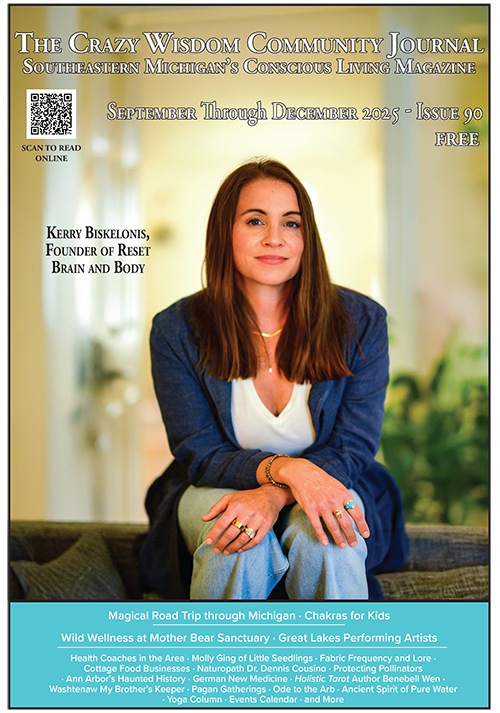On Wednesday, March 18 at 7 p.m., Crazy Wisdom is hosting an Interactive Book Reading and Conversation with Penny Rosenwasser, author of Hope into Practice: Jewish Women Choosing Justice Despite Our Fears. To learn more, visit PennyRosenwasser.com. Jeanne Mackey recently caught up with her long-time friend in Oakland, California, for a phone interview.
Q. Penny, how would you describe the core message of your book, Hope Into Practice: Jewish Women Choosing Justice Despite Our Fears?
A. Hope Into Practice is an activist’s call to heal the world. It's based on the belief that when we feel better about ourselves, we treat other people better -- and our lives are more expansive and full of possibility. It draws on my life experience as a Jew and a lesbian, but it’s really for anyone who cares about human liberation. I've been touring with this book for about a year and a half, and I'm thrilled to see that the message resonates for people from many different backgrounds. For Jews, there's an acknowledgement that we have a lot of fear from historical persecution. And that's not our fault -- but it's about having the courage to face our fears and not act on them.
This theme relates to Israel/Palestine, racism in this country, islamophobia. A lot of us carry fears for our safety, passed down through our families. But when we're in a victim mindset, it holds us back from the lives we want to be living. As [meditation teacher] Sally Kempton says, "It’s hard to fight an enemy who has outposts in your head." I'm not saying it's easy to turn those messages around. But it's possible.
Q. What are some ways to work with our fears?
A. One approach is "acting in opposition" to old beliefs. For example, I might notice when I'm slipping into feeling powerless. It could be triggered by something as simple as waiting for someone to call me. So I ask myself, "What would I do if I felt powerful right now?" When you ask the question, your mind comes up with the answer. It's almost magical!
There's a whole chapter in the book called "Liberatory Healing." I know Crazy Wisdom readers are familiar with many different healing modalities -- bodywork, breathwork, dance, movement, sound, music, yoga, meditation, co-counseling. Often, our hurts are stored in the body, so it's great to find practices that reach those places, that go beyond talking.
Q. You talk about the intersection of personal healing and social justice. Could you give us an example?
A. Yes! In 2008, I went to Poland for a workshop on "Healing the Hurts of World War II." As I describe in the book, there were 70 of us, from the U.S., Europe, Israel, Australia. We were Jews and non-Jews, descendants of Nazi Holocaust survivors and descendants of Nazis. We visited the death camps, raged and wept in each others' arms, found healing and built community together. It was a life-changing experience for me.
In Jewish tradition, we have tikkun olam, a Hebrew phrase that means the repair of the world. Other spiritual traditions have their own versions of this, such as engaged Buddhism or liberation theology. Activism can work as therapy when we're feeling powerless or helpless -- just getting out there and creating a better world in whatever ways we're drawn to.
In a spiritual sense, it all comes down to how we treat each other -- and what helps us see each other's humanity. Our society sets up barriers between us. We can fight the injustices that different groups face. And we can find ways to celebrate both the richness of our diversity and the joy of our commonality. It's a beautiful thing!
Q. What led you to write this book?
A. I entered a doctoral program at the California Institute for Integrated Studies. My focus was learning how to uproot racism in myself and in other white people. I was privileged to be invited to join a study group with four African American non-Jewish women. (We called ourselves “Four Dreds & a Jew.”) I wanted to be a good ally, so I spent a lot of time listening. But the women challenged me -- lovingly but very clearly. They wanted to hear my story, as a Jew and as a lesbian. They said, "The best way you can be an ally to us is to love yourself and to know where you come from, who your people are" (rather than wanting them to validate me). They told me, "When you're standing firmly in who you are, you'll be a much better ally." That really knocked me out! And it led me to explore my own internalized anti-Semitism.
Q. And what's on the horizon for you, Penny?
A. I'm honored that this book has received five awards, including one from the Jewish Women's Caucus of the Association for Women in Psychology. I'm speaking in San Francisco at their annual conference on feminism and restorative justice just before my trip to Michigan. And I'm excited about coming to Ann Arbor!
Jeanne Mackey is a musician, workshop leader, and social change activist. She was last featured in Crazy Wisdom Journal Issue 50 on her memoir-in-song, "Drop the Knife." She and Penny Rosenwasser toured the U.S. as a feminist folk duo in the mid-1970s.






























































































































































































